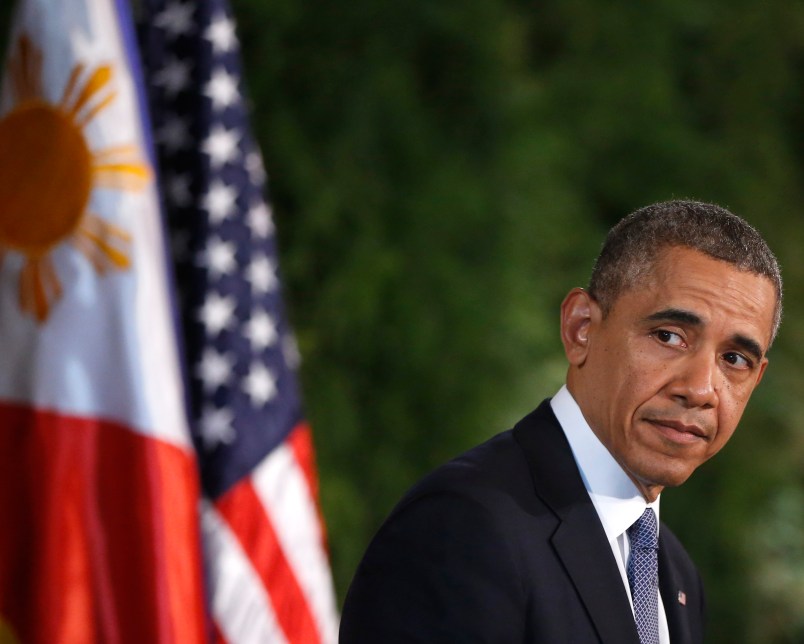When the Supreme Court ruled in June 2012 that individual states could decide whether or not to accept new federal funding to expand Medicaid, it changed health care politics. The Affordable Care Act’s architects had envisioned a big role for Medicaid – fully half of all uninsured Americans would qualify for the program, if every state expanded their offerings. But even though the federal government is slated to pay for almost all of the cost, partisan wars have raged in the states about whether to accept the expansion. As of mid-2014, two dozen largely Republican-led states have so far refused to expand their Medicaid programs.
Although the states largely split on partisan lines, some states with GOP governors or Republican legislative majorities have agreed to expand Medicaid – and more such states may yet do so. The new politics of health care are creating divisions in forces in and around the GOP.
Consider America’s best-known business association, the Chamber of Commerce. In many states, Chambers have lent their considerable clout to forces pushing for Medicaid expansion. As my data show, although Chambers of Commerce in 24 states have stayed on the sidelines, Chambers in another 24 states have publicly come out in support of Medicaid expansion. Ironically, in several states, such as Arizona and Missouri, Chambers have actually waged high-profile campaigns to lobby GOP-led legislatures for Medicaid expansion even while continuing to decry the Affordable Care Act overall.
Given that neither the national Chamber nor its state affiliates are known for supporting President Obama or boosting Democratic initiatives, why is this happening? I am still looking into the factors at work, but three stand out so far.
First, state Chambers are more likely to come out in favor of the expansion when health care providers hold leadership positions. Only 25 percent of state Chambers without a health provider on their board of directors supported the Medicaid expansion, while 55 percent of Chambers with a health provider on their boards did so. This makes sense since hospitals and other health providers stand to do more business if formerly uninsured patients start paying for care through Medicaid. What is more, health providers face losses in states that do not accept the new Medicaid funds, because the Affordable Care Act cuts back on previous payments to hospitals that provide uncompensated care to uninsured patients.
More precisely, state Chambers are especially likely to come out in favor of Medicaid expansion when providers serve on boards and a relatively larger pool of new enrollees would be covered. In states where providers do not serve on Chamber boards, moving from the smallest to the largest forecasted change in the new enrollee pools has no effect on the likelihood that the Chamber will endorse expansion. But in states where health providers do sit on boards, the probability of Chamber endorsement skyrockets as the potential new enrollee pool grows. In interviews, Chamber members told me that decisions to support expansion have not been ideological, but rather driven by the worries of providers, insurers, and employers about having to pay the cost of uncompensated health care.
A final explanatory factor is whether or not state Chambers have a dedicated staff person for health policy issues. Chambers with such policy expertise were more likely to support the expansion. According to Chamber leaders, having a trusted health policy expert who can make the economic case for expansion especially helped to persuade business leaders outside the health care industry.
My initial findings have implications for how we think about the future of the Affordable Care Act. As time passes, growing state-level business support for Medicaid expansion – and for the federal subsidies that make that expansion possible – may become a central force sustaining the implementation of health reform, especially in otherwise very conservative states. These results suggest that health reform advocates seeking business support for Medicaid would do well to focus on the economic case for expansion, to ensure that health providers’ voices are heard within their respective associations, and to provide credible sources of health policy expertise to employers still making up their minds.
Overall, growing business support for this central part of the Affordable Care Act bodes well for health reform. When the U.S. created Social Security and Medicare, businesses largely climbed on board during implementation, even if they opposed the legislation. For the Affordable Care Act, it may be déjà vu.
Alexander Hertel-Fernandez is a doctoral student at Harvard University and a member of the Scholars Strategy Network.







So the Chamber is going to cut back its support of Republicans? Or will they pour money into repealist candidates?
State Chambers and the National Chamber are not necessarily one in the same when it comes to political views. Just as local Chambers may hold vastly different political views than the National Chamber. The local Chamber where I live has disassociated itself from the National Chamber
This is not very surprising. The US Chamber supported Obama’s stimulus, supported a transportation bill, and supports immigration reform because those issues are seen as good for the business community…